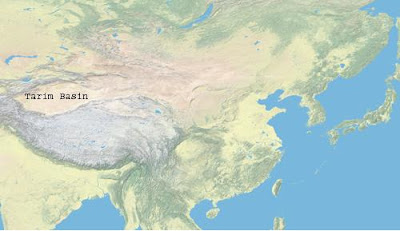North Korea: A danger to itself
On January 26, Professor Stephan
Haggard, Krause Professor of Korea-Pacific Studies and Director of the
Korea-Pacific Program at the University of California at San Diego, came to the
University of Pennsylvania to give a talk titled “North Korea After Kim Jong
Il: Quo Vadis.”
Quo vadis, Latin often translated
“Where are you going?,” refers to the crossroads at which North Korea stands
today. It has so many different opportunities that political scientists today
are either left in headaches or where they started when investigating North
Korean political maneuvering.
Haggard gave an overview of some of
his research, which primarily consisted of survey data from Korean refugees. It
was incredibly telling of not only the situation within Korea, but also of how
it had developed since the great famine.
When the ration system,
characteristic of the communist system, collapsed during the famine with the
fall of the Soviet Union, people were left vulnerable and were forced to fight
for their own survival, with 12.7% of the refugees surveyed from that time
period reporting that they relied on foraging as their mains source of
sustenance. The only confusing thing is that today, the economy is still smaller
than it was before the famine started and the volume of food delivered by the
ration system, according to the World Health Organization, cannot possibly feed
the population, which has been growing since the turn of the century.
According to the interviews of
refugees, an organic market-based system of trade has developed within Korea to
distribute food based on demand, since the government ration system is not
efficient enough to supply the whole country. Many people believe that engaging
in either these market activities or criminal activites such as bribing
officials to continue private market activity are the best ways to make money
and get ahead.
The closing remarks and questions
revolved around reunification, the increasingly prevalent market economy, and
the potential for an internal democratic movement. Haggard responded with
little hope for reunification, and the belief that North Korea will not tend
towards an official endorsement of a market economy, especially since China
refuses to use sanctions to coerce North Korea to accept this change.
So little information is readily
available on North Korea that most people know little other than the occasional
headline, such as the recent change in leadership, the shelling of Yeonpyeong,
or other skirmishes. If interested in further reading on North Korea, Professor
Haggard keeps a daily blog, North Korea: Witness to Transformation.
The talk was held in Stiteler Hall
and was introduce by Dr. Jacques DeLisle. The event was co-sponsored by the
Center for East Asian Studies and the James Joo Jin-Kim Program in Korean
Studies.
F. Miller SAS ‘13



Comments
Post a Comment
We follow the House Rules as outlined by the BBC here.